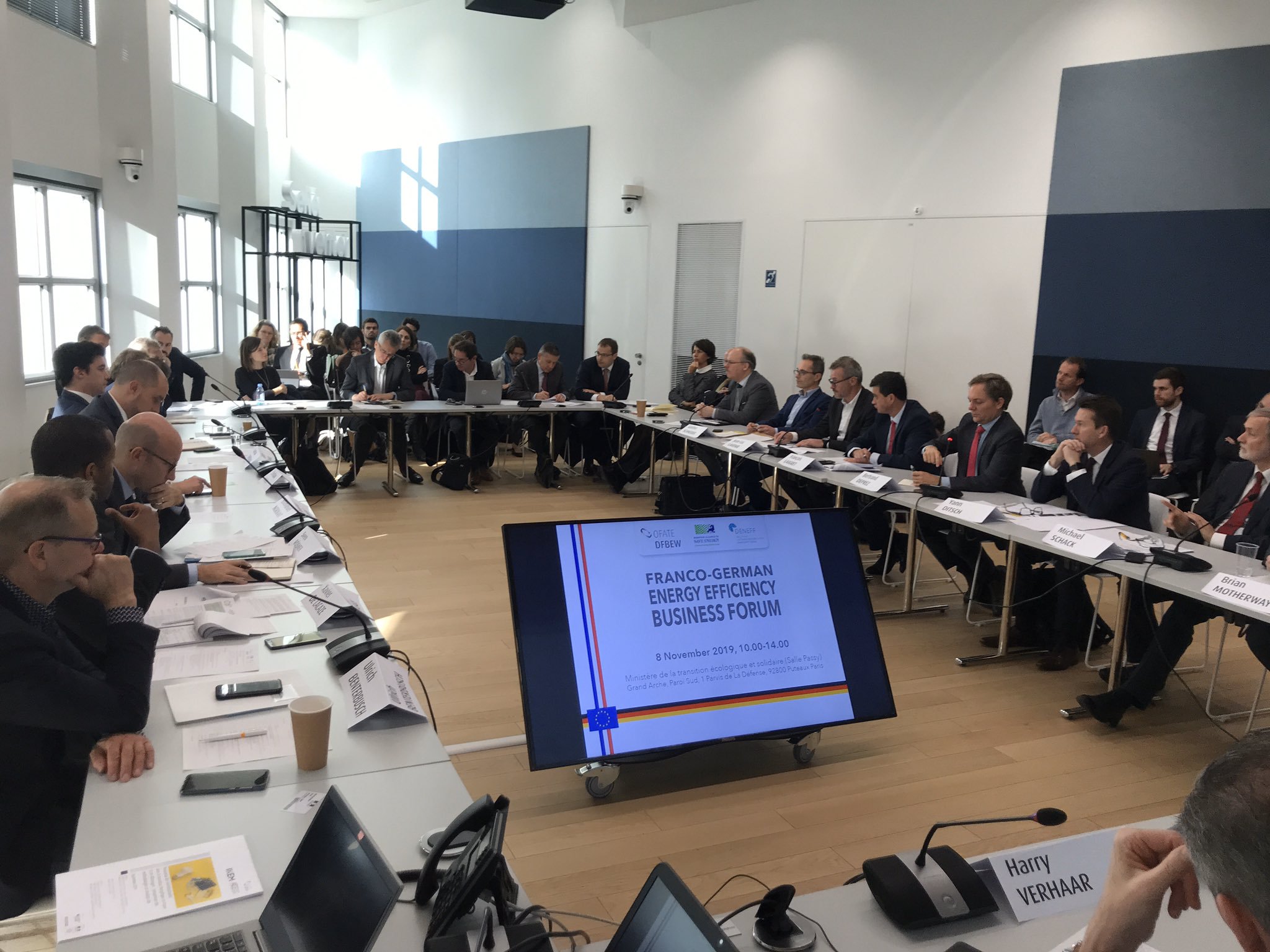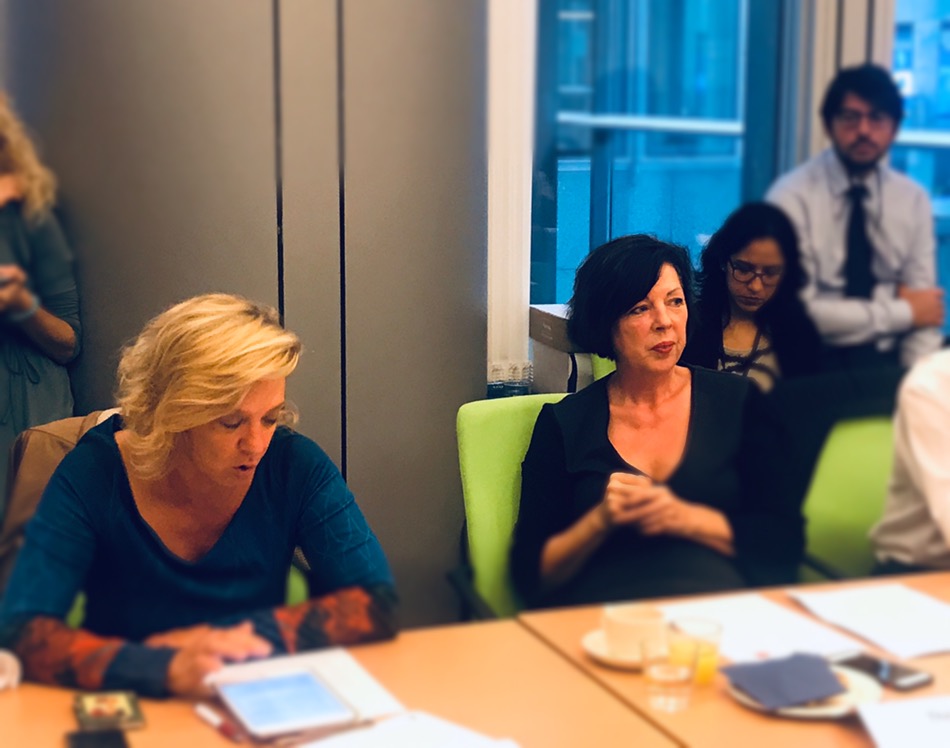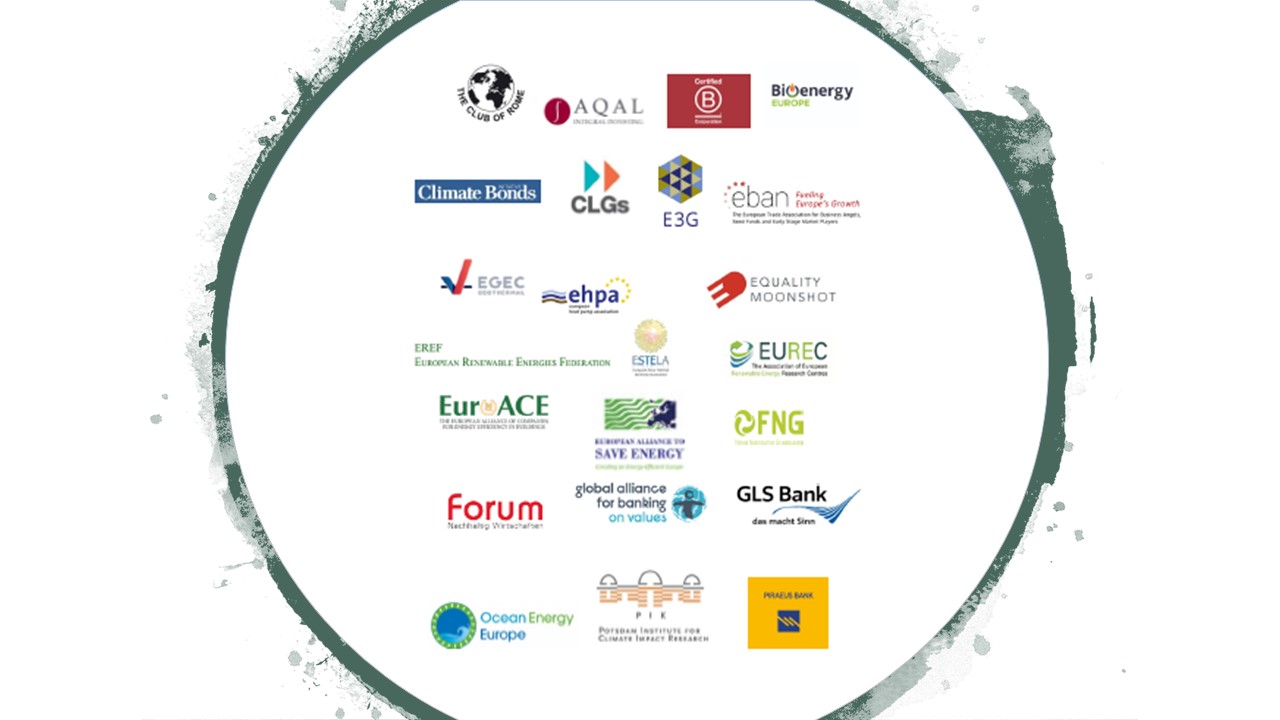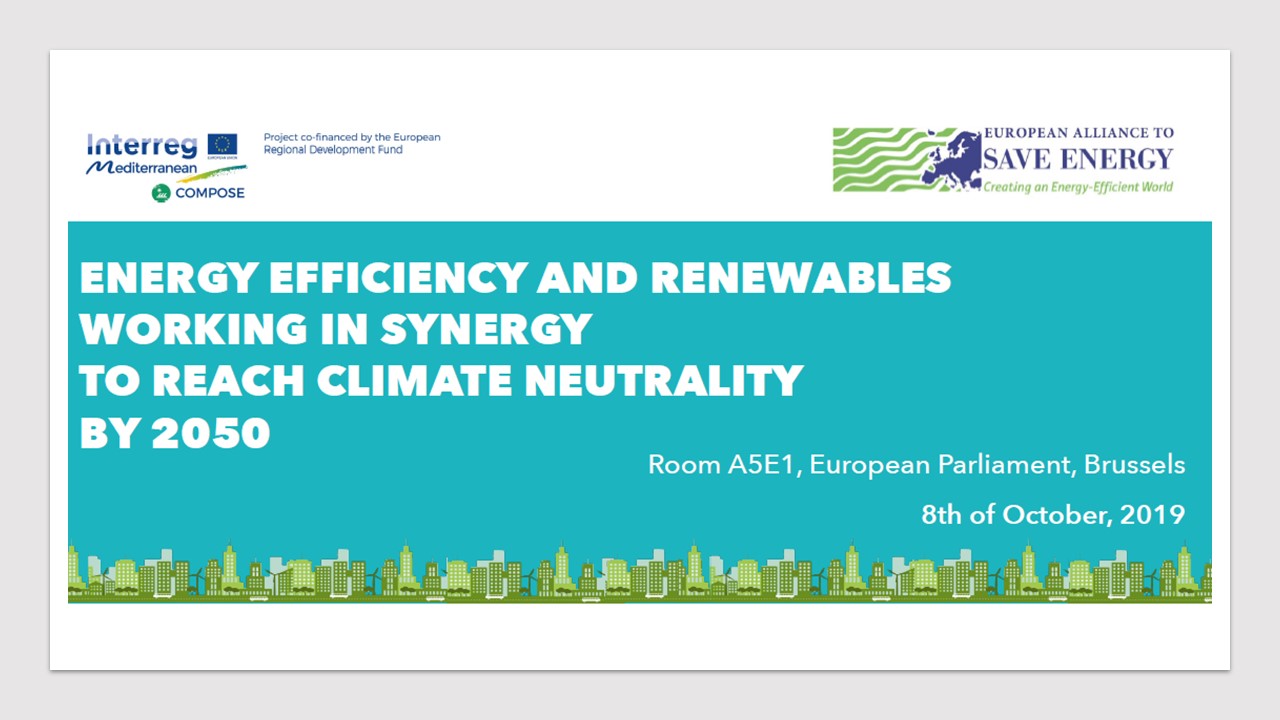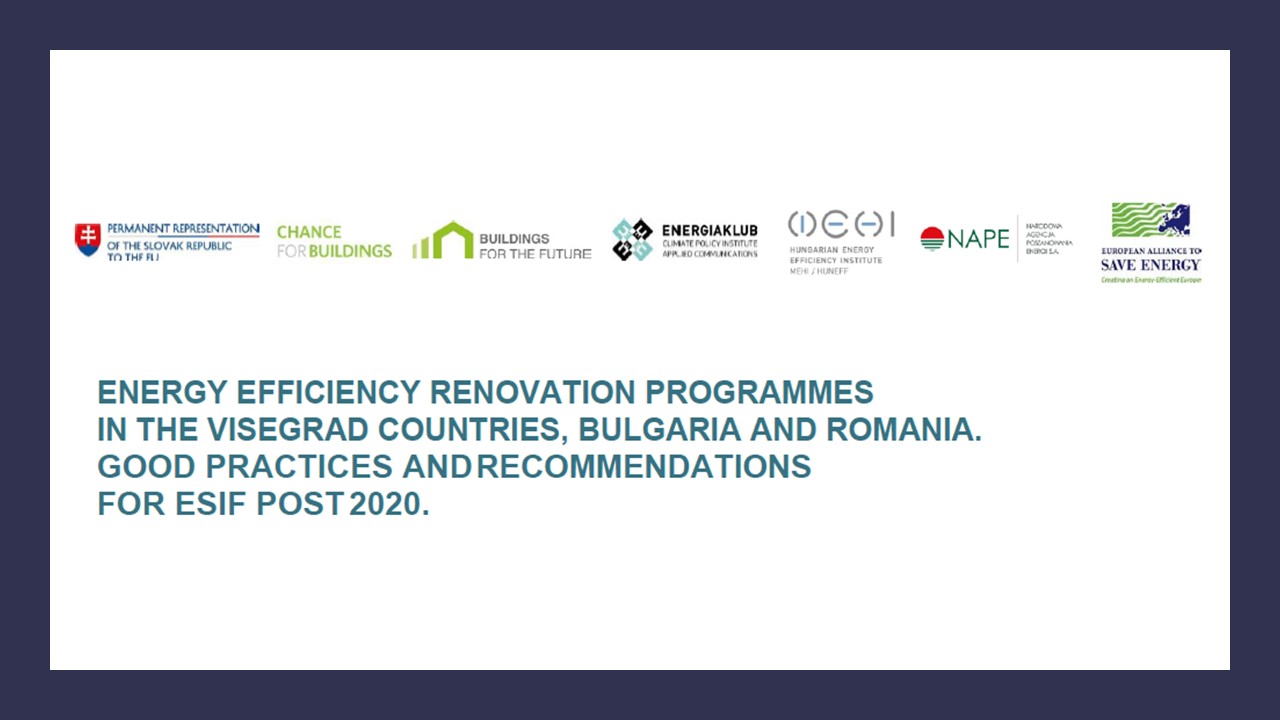Third FR-DE Energy Efficiency Business Forum

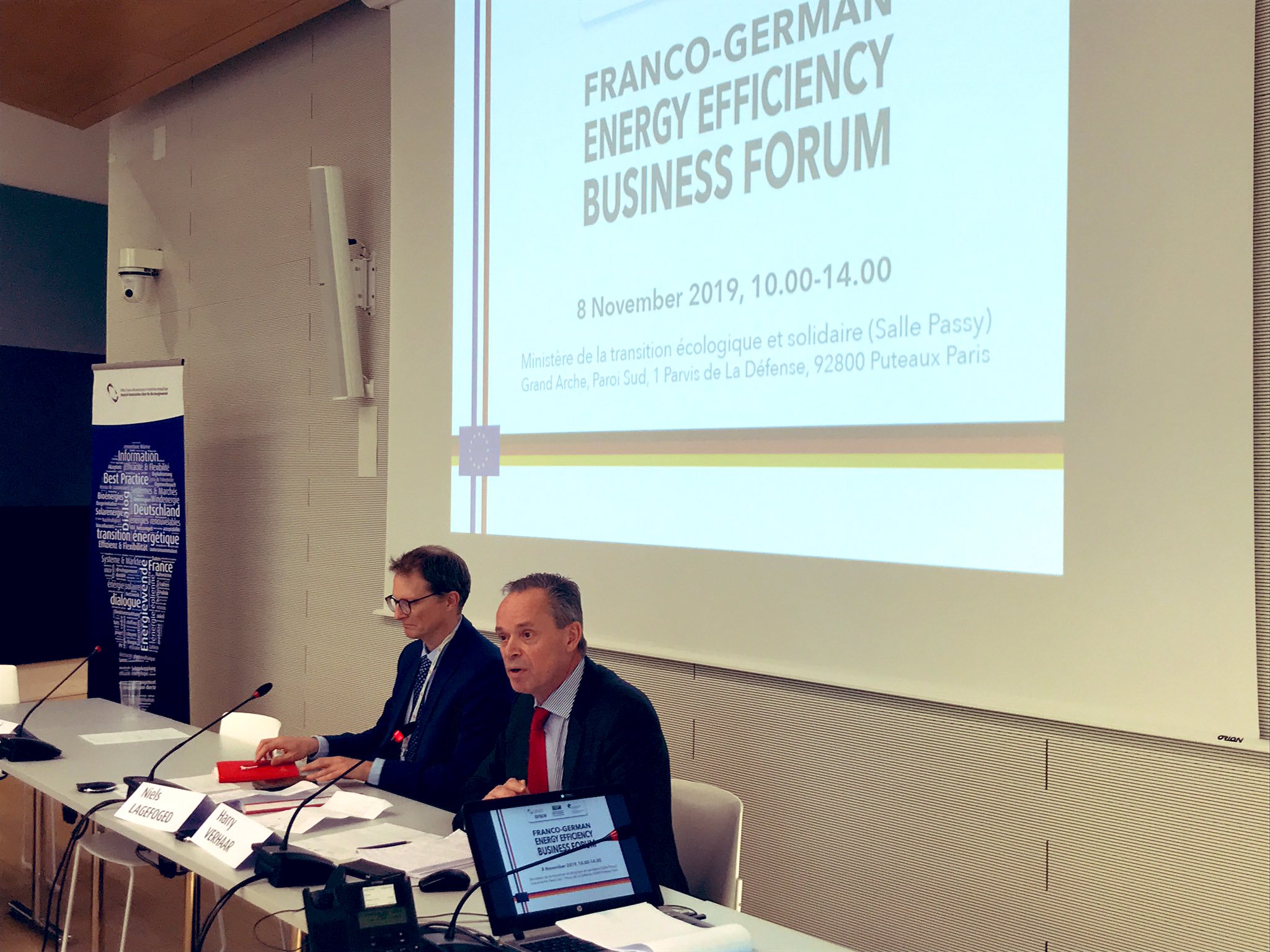
The third edition of the Franco-German Energy Efficiency Business Forum, co-organized by EU-ASE, DENEFF and OFATE, took place on 8th November at the Ministry for Ecological Transition in Paris.
The event gathered a cross-sectoral group of businesses and Government representatives from France and Germany to discuss how accelerating energy efficiency through financing, decentralisation and digitalisation. The event was an opportunity to highlight the importance of Franco-German cooperation for both greater ambition in the implementation of the existing energy efficiency regulatory framework and for the European Green Deal.
The event stressed out that energy efficiency is a growth agenda and key enabler for decarbonizing the economy for France, Germany, and the European Union.
The forum attracted more than 50 high level participants. Please see the final agenda here.
In a joint statement following the event, Harry Verhaar, chairman of the European Alliance to Save Energy, said “Policy choices made by governments will determine the shape of the energy system of the future. If we want to achieve a climate neutral economy by 2050, we need to put the energy efficiency first principle at the heart of the transition. Changing how we construct, light, heat and cool our buildings will trigger positive change in many sectors, including energy and heavy industry, but also in sectors which at first sight may seem less connected, such as health and education. In the decade of climate action, the Franco-German partnership could lead by example, starting by committing to make all of their buildings net-zero by 2030 at the latest.”
Read the full joint statement here.
Download Brian Motherway’s IEA presentation here.
